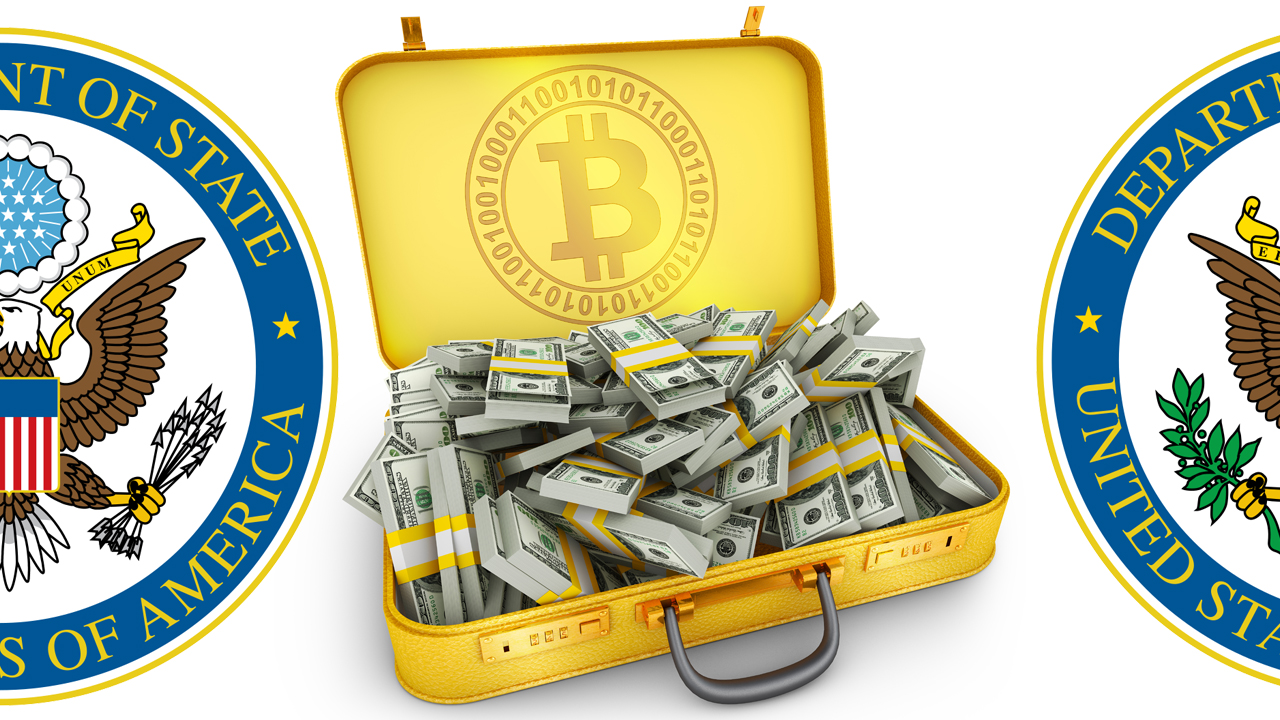US Government Now Offers Informants Crypto Rewards in Addition to Bank Wires, Suitcases Full of Cash

Attendees of the Black Hat hacker conference in Las Vegas were introduced to a new advertisement crafted by the U.S. State Department. According to individuals who accessed the government advertisement via an open Wi-Fi network called “#Rewardsnotransoms” they discovered the U.S. government is offering to pay crypto rewards to individuals who give up information concerning malicious, state-backed hackers.
US State Department Advertises ‘Rewards for Justice’ at Black Hat 2021 in Las Vegas
The never-ending war on terror continues as the United States government is focused on state-backed cybercriminals that have attacked U.S. infrastructure or have created terrorist organizations. Last week, reporters and attendees of the Las Vegas hacker conference called “Black Hat” explained that the U.S. government, specifically the State Department, was advertising a new program called “Rewards for Justice (RFJ).” The news outlet CNN was the first to break the news after Black Hat participants explained they saw the government’s advertisement displayed on t-shirts and flyers in the form of a QR code.
The web portal constructed by the State Department is offering up to $25 million to informants who give up information on state-backed cybercriminals. Members of U.S. law enforcement believe informants will be enticed by crypto payments and most of the offers are between $3-10 million. One specific reward for Ayman al-Zawahiri, an Al Qaeda leader, is for $25 million in digital currency.
“We’ve been working on this quite a while and it coincided at a very good time that we managed to get this rolled out as critical infrastructure and ransomware were at the top of the news cycle, so to speak, and a major concern for the US government,” a Diplomatic Security Service official who oversees RFJ told CNN. Hackers can even access the RFJ web portal via the anonymous web browser Tor.
US Diplomatic Security Service Official: ‘We Actually Do Deliver Suitcases Full of Cash’
The news of the U.S. State Department paying informants with crypto assets to rat out malicious hackers follows the recent discovery of “Antinalysis,” a “blockchain analytics tool that has been launched on the dark web.” Moreover, the U.S. government has offered to pay hackers to break the obfuscation the Monero (XMR) network offers. Enticing hackers with crypto is nothing new, and the official told CNN the government has been paying for tips in this fashion for two years.
“This is not a quick process. We are receiving tips. We are evaluating tips. We’ll share those tips with the interagency partners. They must then use that information and reach out and begin their investigation,” the official emphasized. “This is a longer-term process,” the unknown source from the U.S. Diplomatic Security Service said. Interestingly, the official disclosed that in the past, before cryptocurrency rewards, suitcases full of cash have been used to pay informants.
In addition to the newly introduced crypto rewards, the Diplomatic Security official said that they still utilize the old school methods of payment as well. “We provide wire transfers, we actually can still deliver — and do deliver – suitcases full of cash, we can provide in-kind rewards,” the official concluded. According to the U.S. government, tips from RFJ led to the conviction of Ramzi Ahmed Yousef.
What do you think about the U.S. State Department offering crypto awards to informants who give up info on cybercriminals backed by nation-states? Let us know what you think about this subject in the comments section below.
from Bitcoin News https://ift.tt/3ANLG3y
Comments
Post a Comment